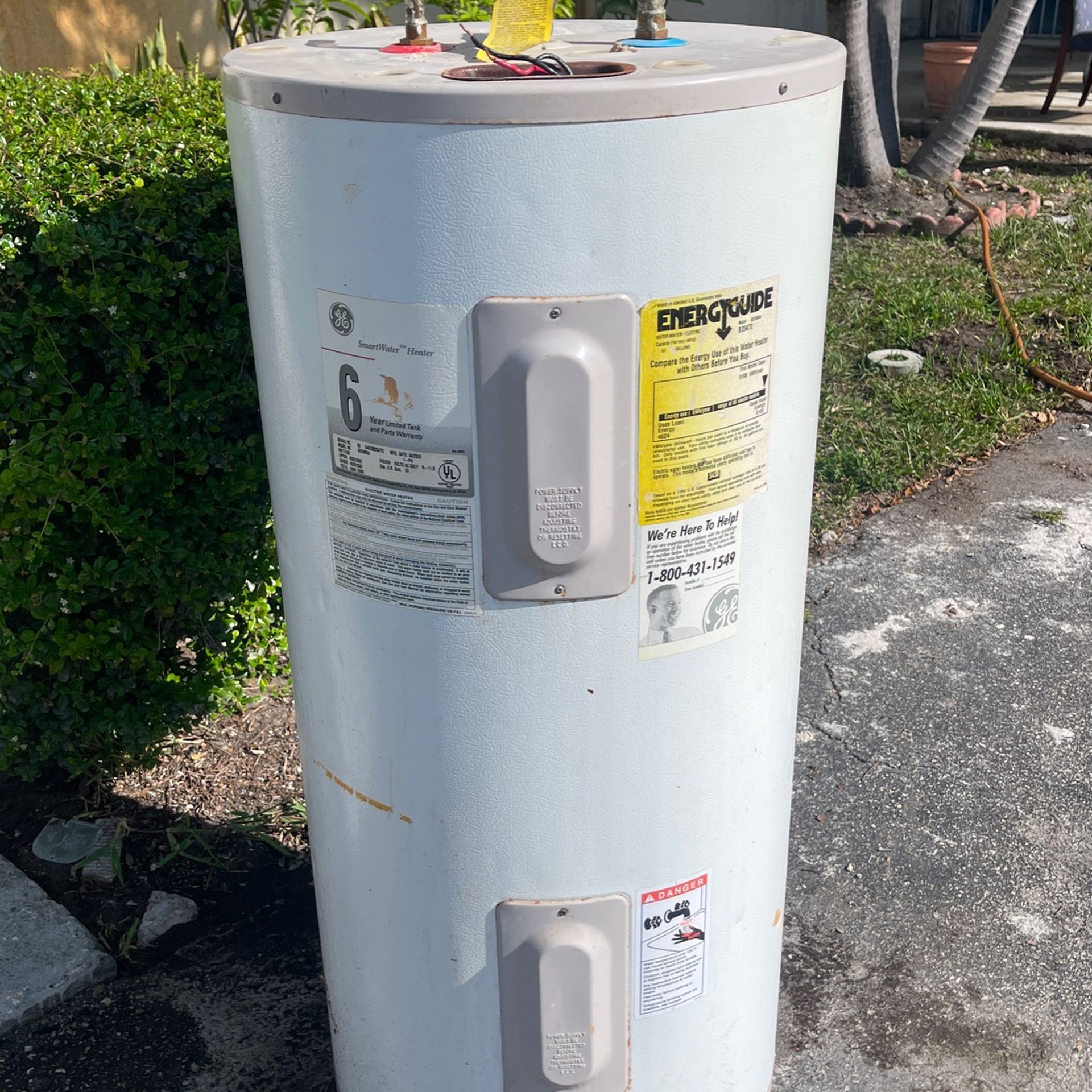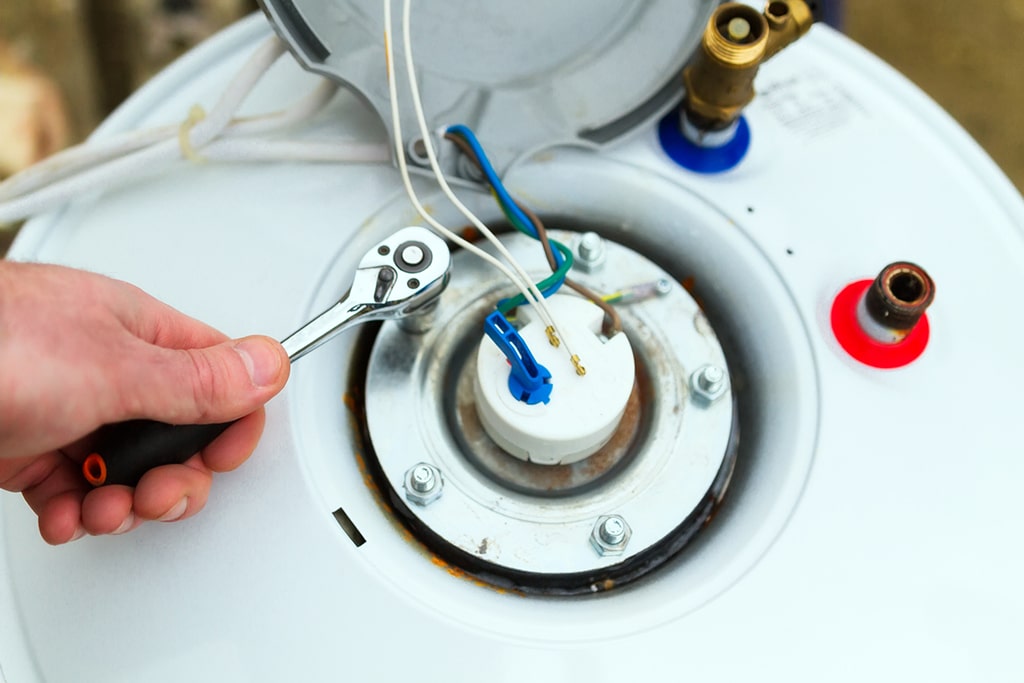Listed here down the page you can get more helpful tips regarding Water Heater Repair.

Whether it is located in the cellar or a separate room, busted water heating units can trigger stress. Having no warm water supply is also frustrating.
Turn Off Source Of Power
Prior to calling the plumber, shut down a gas hot water heater by transforming the temperature dial. This is generally located on top of the thermostat. Switch over off the circuit breaker if you have a model that runs on electrical power. This will avoid electrocution, particularly if there is a leakage as water is a conductor. Typically, the heating element shuts off when the water hits a certain temperature level. With a busted container, it may malfunction. Sufficing off ensures you remain safe.
Cut Off the Cold Water Supply
Cut off the tanks faucet water supply from the source. This goes from your major water line into the container. When your tank remains in good condition, the cold water stops filling when the tank is complete. But considering that it is leaking, the water will continue to move. Close the valve located at the top of the heating unit. Revolve this clockwise to shut it off. You need to transform off that major water supply line outside your property if you can not find it or reach it.
Call the Plumber
After doing the initial two security actions, you need to call your plumber to come right away to fix a ruptured water heating unit. There are usually signs that your aging water heater has sediment buildup in the interior.
Don't wait on significant flooding to call the plumber. Already, you will have to invest more to restore your residential or commercial property. Rather, as soon as you spot these indications, have an expert involved inspect your water heater say thanks to. Usually, water heaters have a life-span of about 8 to 12 years. With regular evaluation and maintenance, you can prolong its life.
Tidy up Property
After calling the plumber, document damages by making note as well as pictures so you can declare your property owner's insurance. From there, begin the immediate cleaning. Get any kind of essential belongings to avoid further soaking. Eliminate any kind of standing water to prevent mold and mildew and mold development. Make use of that to drain pipes the water if you have a submersible water pump. Or else, the conventional pail technique will certainly likewise function. Try to wipe out everything, including walls as well as baseboards. If you have an electrical fan and dehumidifier, maintain them going to keep air distributing. This will aid hinder mold development.
Keep in mind, if you discover any concerns with your water heater, call the pros right now. You can not take this issue lightly due to the fact that a faulty thermostat can elevate water temp to a dangerously high degree, leading to unintentional burns. A broken heater stress safety valve can additionally trigger a surge. For finest outcomes, get a yearly check so your unit obtains inspected, cleaned up, drained pipes, as well as re-filled, guaranteeing optimum performance.
Whether it is located in the cellar or a separate room, busted water heating units can cause stress. Prior to calling the plumber, shut off a gas water heating unit by turning the temperature level dial. After doing the very first 2 safety and security steps, you must call your plumber to come right away to repair a ruptured water heater. If you have a completely submersible water pump, make use of that to drain the water. Remember, if you discover any concerns with your water heating unit, call the pros right away.
8 REASONS YOUR HOT WATER HEATER IS NOT WORKING & HOW TO FIX
Water Heater Problems & Solutions
Loose or Damaged In-Line Valve
Unlike a water leak near the bottom of your water tank, a water leak on top of your system can be easily fixed. A common cause of water tank leaks includes a loose in-line valve. This is a handle that is located at the top of the water tank that is engineered to activate or deactivate the flow of water. To fix this problem, you will need to secure the nut that holds the ball or in-line valve in its location. If the leak becomes more severe once it is tightened, you will be required to travel to your local hardware store to purchase a new in-line valve for your water heater.
Damaged Pressure Relief Valve
Most types of water heaters are equipped with a pressure relief valve that is engineered to discharge pressure from the water tank when it becomes too high. If this valve on top of your water heater begins to leak, we recommend purchasing a new one online or from your local store. The process of removing and replacing pressure relief valves is not complicated.
No Warm Water
If you have an electric water heater in your home, the most typical cause of a lack of warm water is a broken heating element. Your water heater is equipped with two heating elements that are tasked with heating incoming water in the water tank. Once a heating element begins to malfunction, you will have little to no hot water to use for showering, cleaning, and laundry.
Low Supply of Hot Water
Are you continuously running out of warm water? This issue may be a byproduct of a cracked dip tube. This tube is engineered to push cold water to the base of your water tank to be heated. Once a crack or hole begins to form in the dip tube, the incoming supply of cold water may be released near the top or middle of your tank. As a result, the cold water on top of the tank will be sent to the faucets and showers in your house. This hot water heater problem can only be fixed by replacing the dip tube on your system. Since the process of installing a new dip tube is complex, we recommend calling a certified technician for help.
A low supply of warm water may also be a signal of excess sediment buildup in your water tank. As your water heater reaches the middle of its life cycle, minerals in water including magnesium and calcium will begin to collect at the base of the water tank. As the minerals continue to grow, there will be less room in the water tank to store hot water. To resolve this problem, flush your water heater to remove the excess minerals.
Water is Too Warm or Cold
If the water in your shower feels uncomfortable hot or cold, you can adjust the temperature of your water by changing the settings on your thermostat. Setting the temperature to 120 degrees Fahrenheit may help you save money on your utility bills. This is an excellent temperature to use if you’re worried about scalding or skin irritation. Does this temperature feel too cold? You may also adjust the thermostat to 140 degrees Fahrenheit to make your showers more pleasant. If your hot water heater is not working when you change the temperature, this is an indicator of a broken thermostat. Immediately find a certified plumbing or heating contractor in your area to repair or replace your thermostat.
Low Water Pressure
Low water pressure is not always caused by a malfunctioning water heater. If you live in an older home with smaller water pipes, the flow of water will be restricted prior to reaching our kitchen or bathroom skins. The only way to eliminate this hot water heater problem is to connect new ¾-inch water lines to your system. Another type of problem that may negatively impact your water pressure includes calcium deposits in water pipes.
As magnesium and calcium begin to form in your pipes, the diameter of your water lines will become smaller. As a result, the warm water from your water heater will not be able to travel in an efficient manner to your sinks or appliances. Since the process of replacing water pipes includes removing drywall, an average homeowner that does not have a plumbing license will not be able to fix this hot water heater problem.
https://www.wmhendersoninc.com/blog/8-reasons-your-water-heater-is-not-working-how-to-fix/

As a devoted reader about Water Heater Repair, I imagined sharing that piece of content was worth the trouble. Do you know about another individual who is in the market for the topic? Be sure promote it. Thanks a bunch for your time. Come back soon.
Book With Us Today!